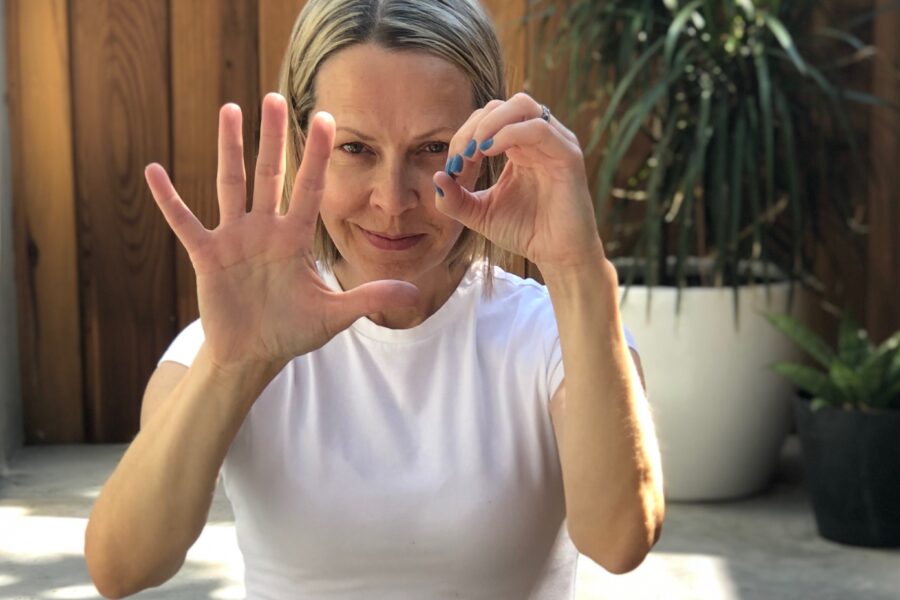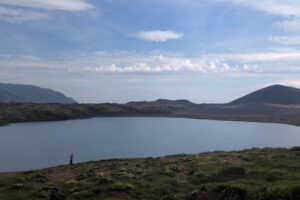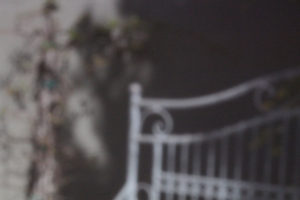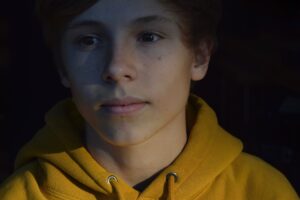For fifty years, I believed that stuffing everything down, that being private and unknowable would earn me some kind of badge of honor. I thought I would rather die than reveal myself. But all that withholding ever did was leave me feeling isolated and perpetually lonely. It’s not like I knew any different. Secrecy and self-containment are part of my DNA. They course through my veins. Put it this way, when I watched the HBO show, Chernobyl, I felt oddly at home with all of those tight-lipped, subservient characters. And why wouldn’t I? These are my people. I am a daughter of the eastern bloc. My family—Latvians–endured centuries of occupation. Of being tossed about by the European hierarchy, and looked upon as bottom dwellers. If anything, Latvians are survivors. Which is precisely what my father taught me: work hard, keep your head down, ask for nothing. It’s how he was raised, and his parents before him, and their parents, too. At least, this is what I tell myself. Ask someone else in my family, and they might say I’m off my rocker–that we are warm and fuzzy and wear our hearts on our sleeves and are eager to ask for help. Our narratives are our own. Carefully constructed to keep us safe, manage our pain, perpetuate our identities. Sometimes you can spend an entire life clinging to the stories and theories you tell yourself. And then sometimes, from out of nowhere, you do something that betrays your character. And all of those myths get blown to smithereens.
Ninety-four weeks and fifty-thousand words later, I have one big takeaway: Brené Brown is a household name for a reason. It turns out that being vulnerable and sharing that vulnerability with others is life changing. And here’s why. Vulnerability connects us in the deepest of ways, especially with the people who we think know us. It reveals our sameness, slices away all of our bullshit stories about how unique we are, deafens our ego, fosters gratitude, and, I believe, just makes us happier effing people. When I began this experiment, I was 50, menopausal, insecure about my aging body, rudderless in my career, and desperate for meaning. I didn’t set out to expose all of these secrets, but it happened. And guess what? I’m still alive. The world hasn’t shattered. I haven’t been blacklisted for being 52 (not to my knowledge, anyway). Plus, I am a thousand times happier. Before this project, I had no idea how my stoicism affected my relationships; how my discretion kept those nearest and dearest to me at arm’s length. My own sister shared with me–because vulnerability begets vulnerability–how much she appreciated the opportunity of getting to know me better through my essays. Honestly, her disclosing this truth made every nauseous moment of the past nearly-two-years absolutely worth it. I could never have imagined that my angst over turning a half-century old, the death of a friend, and a momentary lapse of judgment when I hit publish, would result in transformation. But then again, you never know exactly what will bring about the change you need.
Which brings me back to this experiment and the driving question of whether or not I could cut through all the hullaballoo around the big 5-0 and arrive at some sort of conclusion. Well, I know one thing…ageism abounds, especially in me. Shining a light on this milestone, I’ve become keenly aware of how quick I am to call myself old. How regularly I use that line to deflect a compliment, avoid intimacy, make an excuse about what’s achievable (like putting on a frigging bathing suit), and give cause to my ruts. I’ve noticed how easily I rage at someone because of their years (usually when driving) or judge someone’s ability before they’ve even said a word. On the flip side, I’ve experienced how a room gets quiet after learning that I’m the oldest person there. How often young people look straight through you, and how sexless that makes one feel. I’ve observed, over and over, how rigid we all are in our thinking, especially mid-lifers (my god, what’s wrong with us!). And while I’d like to blame the whole kit and kaboodle on white males (insert winking emoji), we are all part of the problem. Nothing changes until we change ourselves, right?
Arriving at the end, I know that I still have a lot of work to do settling into this stage of life. While 50 is just another year and just another decade, it’s also a game-changer. For me, it brought the same transformative qualities of puberty. It also brought empowerment because that change demanded I possess myself in a brand new way. Admittedly, I still feel apprehensive about death; whether or not there’s room for me in a world that worships the young; how I continue to make the same mistakes over and again. Once in a while, I succumb to the promise of agelessness and my fantasy that–after a few needles–I’ll wake up to find my 35-year-old face in the mirror. The noise around the big 5-0 hasn’t entirely gone away, but it has lost its hold on me. I’ve figured out that all the racket is simply the echo of our collective anxious chatter. That once you cut through the din and arrive on the other side, 50 is AMAZING. It’s quiet and powerful and…whatever you want it to be. The way I see it, 50 isn’t the end of an era. It’s the beginning.







